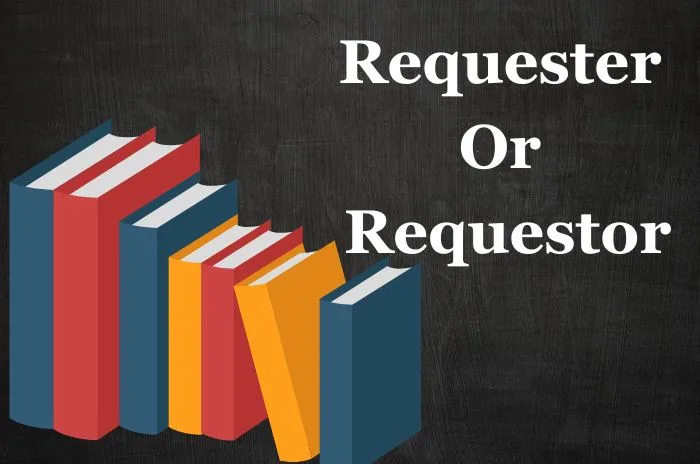Explore the difference: Requester Vs requestor. Understand the nuances of these terms and gain a comprehensive understanding of their usage and implications. Find out which one best suits your needs. Highlight the key differences in this insightful comparison.
Requester Vs Requestor
Both these words have the same meaning and usage. “Requester” is the more common American spelling. “Requestor” is the British spelling.
The correct spelling of this word in the English language is r-e-q-u-e-s-t-e-r. A requester is anyone who asks for something, whether it’s a favor, information, clarification, or assistance. This term is applicable in both formal and informal contexts. However, the term requester can also be found in some dictionaries and is mostly related to computer programming languages.
Requestor or Requester
As mentioned earlier, a requester refers to someone who is requesting or asking for something. It is important to note that the requester may not always demonstrate politeness, and someone asking for something may also be considered a requester.
On the other hand, Requestor is a term mainly used in computer programming languages, such as C++, which involve interfaces. In the field of computer communications, requestors are lines of code that essentially ask for specific information from another computer.
It is also noteworthy that in some cases, individuals who do not speak English natively, especially in the U.K. And in Australia, may use “requester” with “-or” at the end to differentiate their English from American English.

Origin of Requester
The word “requester” is a derivative of the word “request”. The English word “request” originates in Middle French and dates to the 14th century. In the mid-1920s, with the advent of radio technology, a new context for the term “requester” emerged. During this period, a “requester” referred to a person who either phoned or wrote to a radio station and asked to play a specific song.
“Request” is a word that refers to the action of asking for something. On the other hand, a “requester” is a person who engages in the act of making a request. It is important to note that “requester” is a noun and can only refer to one person, as the act of making a request typically involves physical or verbal interaction.
Usage of Requester
The term “requester” plays an important role in administrative and communication contexts. It functions as a noun, describing a person or entity making a formal request or inquiry. In administrative settings, a requester may submit an inquiry seeking documents, applications, or information in order to shape decision-making processes. Whether it is a petitioner seeking a solution, a researcher seeking data, or a citizen requesting government assistance, the term “requester” highlights the essential role played by those who initiate the request and their role in achieving the desired outcome.
Here are alternative sentences using “requester” in different contexts:
- The requester omitted the required details, due to which his application was rejected.
- To obtain military records, a specific form must be completed, and the requester must be either a veteran or the veteran’s next of kin.
- During the tax filing process, the IRS may request identification documents from the taxpayer.
Usage of Requestor
The use of “requestor” is prevalent in a wide range of scenarios, where it refers to a person or entity making a request for information, services, or assistance. Whether in customer service interactions, administrative processes, or digital applications, the term “requestor” helps to identify and differentiate those who initiate the request and those who complete it. Its use simplifies communication and streamlines processes, ensuring that requests are efficiently managed and resolved. In short, the concept of requestor is integral to effective request management in both everyday and professional settings.
The requestor is less common than the requester, but it still has its place in the English language. It is often used in more formal contexts to describe someone making a request. Here are a few examples:
- The requestor must provide a valid reason for the request.
- The identity of the requester was kept confidential.
- The requester’s application was rejected.
As shown, the requester is often employed in a legal or business setting where formality is paramount. When deciding whether to use requester or requester in a specific context, it is appropriate to consider the tone and formality of the situation.
Read Also: S Vs S’: A Comprehensive Comparison 2023
FAQ
What is the meaning of Requester vs requestor?
A Requester vs requestor is someone who makes a request or asks for something.
What is a requestor person?
A requestor person is an individual who makes a request or asks for something from someone else.
What is a synonym for requester?
Applicant
Is requestor a noun?
Yes, the requestor is a noun.
What is the plural form of requester?
Requesters
Conclusion
Requester vs requestor, Both terms have their proponents, choosing the widely accepted “requester” ensures intuitive understanding among diverse audiences. Ultimately, choosing the right terminology can add professionalism and accessibility to your conversations, fostering smoother collaboration and more effective communication.
